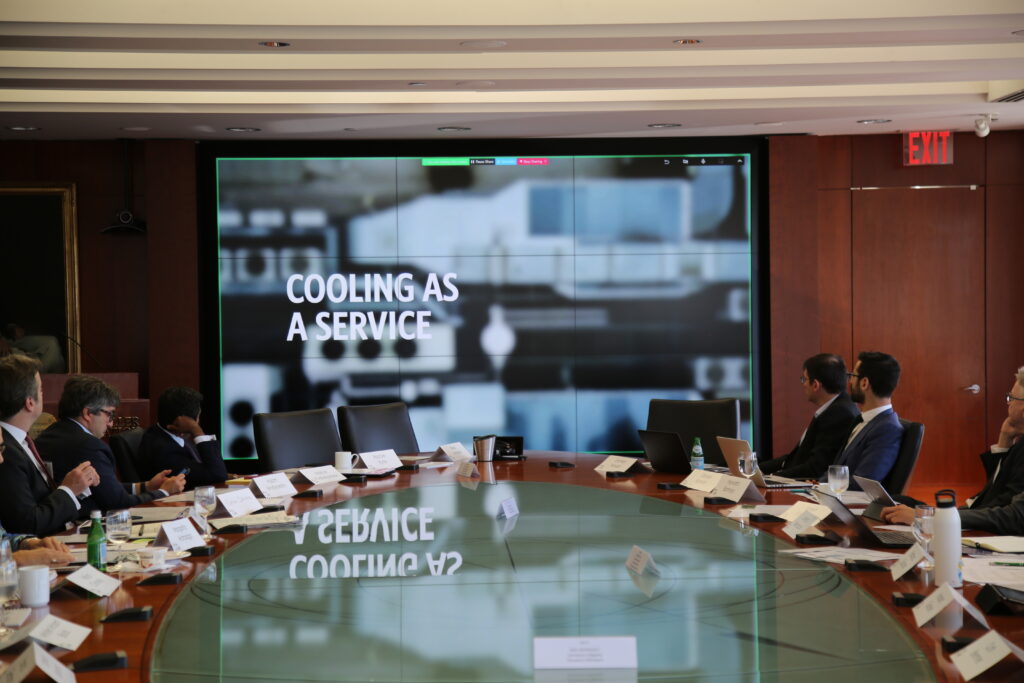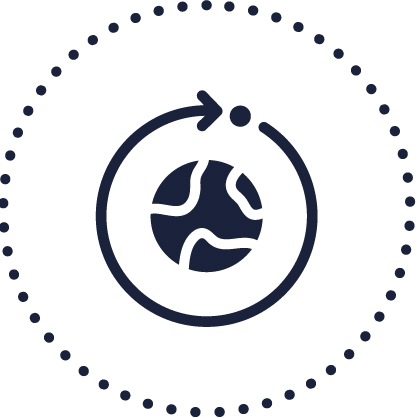Cooling as a Service (CaaS) Initiative
BASE is leading the Cooling as a Service (CaaS) Initiative on behalf of the Clean Cooling Collaborative (formerly K-CEP) with the objective to scale-up the demand for efficient, clean cooling systems, through the use and promotion of the innovative CaaS business model.


Overview of the project
Cooling represents 10% of global electricity and demand will triple by 2050. In many regions, cooling is a means of survival necessary for habitable living conditions, life-saving healthcare, and food security.
However, conventional cooling consumes mass electricity and uses climate-harmful refrigerant-gases. Cleaner cooling technologies deployment has been limited by high up-front costs, uncertain returns and limited financing options for the most vulnerable.
CaaS is an innovative business-model that aims to make energy-efficient cooling more competitive and affordable. It enables customers to outsource the cooling services, rather than investing in the equipment. With CaaS, end-customers pay for the cooling they receive, rather than the physical product. The technology provider installs, runs and maintains the equipment, and the user pays a fixed-cost-per-unit for the cooling service delivered. The technology provider pays for the electricity consumed by the equipment, which is a strong incentive to install the most energy-efficient equipment, and to optimise maintenance. CaaS providers are also incentivised to use design modular equipment, an aspect often not considered in linear economies where disposal is common.
CaaS is a true groundbreaking solution with the potential to rapidly accelerate the transition to a low-carbon economy in which cooling is accessible to all. In 2019, the Global Innovation Lab for Climate Finance endorsed CaaS as a game-changer.
BASE has supported CaaS projects with an incubator programme and CaaS toolkit, in Africa, Asia, and the LAC region. During the last years, BASE has supported more than 10 businesses to implement CaaS, pursuing more than 60 projects worldwide (including cold-storage for agriculture and vaccines) each benefitting between 1,000 and 100,000 people/year.
CaaS, and climate-friendly cooling solutions enable to reduce significantly GHG-emissions (50%), support food-security (reducing food spoilage by more than 30%), education, and health care for vulnerable populations. CaaS facilitates the adoption of technologies that support the COVID recovery and resilience.
An innovative business model that makes energy-efficient cooling systems more affordable and accessible.
Multi-site development
01/12/2018 - still in progress
- The CaaS model has been implemented by more than 25 companies, pursuing 80 CaaS projects and reaching more than 1,000,000 beneficiaries. Its implementation results in 168 GWh and 79,600 tCO2eq saved per year, in addition to numerous economic including increased revenues for farmers and cooling providers.
- In Nigeria, BASE supported KoolBoks to provide high-tech energy efficient, solar-powered freezers and refrigerators to local small businesses (including market stall holders). This resulted in reduced food loss of participating farms in Nigeria by 20,400 tons, saved 463 tCO2e/year and increased the income of more than 3,000 farmers by 50%. In the Delta State healthcare facilities the pilots are using 2 units of 150L solar refrigerators. Each system has the capacity to store 5,000 doses of vaccines. Together these projects save approximately 9 tons of CO2 emissions per year by removing the need for diesel generators and the bad refrigerants.
- The CaaS model has the potential to bring numerous social benefits by facilitating access to cooling to marginalised groups, specifically for women. For example, CaaS has been implemented to allow farmers to gain access to affordable cooling, allowing them to store their produce before selling it, therefore reducing food waste and increasing revenues. In Nigeria, 80% of the beneficiaries farmers are women, while in India, the pilots are specifically targeting female farmers.
- CaaS extension project, “Your Virtual Cold-Chain Assistant,” specifically focuses on supporting women farmers, as they usually lack access to information. Additionally, women in agriculture are in general more affected by the effects of climate change, by being more dependent on agriculture’s revenues as it is often their only means of subsistence. Our solution allows women to maximise their profits, and to be less vulnerable in the face of climate change.
The CaaS Initative was supported by the Kigali Cooling Efficiency Programme (KCEP) through a grant.
organisation
BASE is a non-for-profit organisation and a specialised partner of UN Environment founded in 2001. BASE’s mission statement is to “develop innovative, actionable financial strategies and market-driven solutions to unlock investment in climate change solutions”.
BASE combines expertise in technology, markets, economics, finance and business development to deliver effective solutions for every project and builds bridges between sectors and actors at the nexus between sustainable energy, finance and international development. BASE believes that smart business models and financing are crucial to making energy efficiency competitive against conventional technologies and attractive for investors. BASE believes that every market presents viable renewable energy and energy efficiency opportunities, which can be developed and scaled using smart models and mechanisms that respond to the market needs and conditions.





